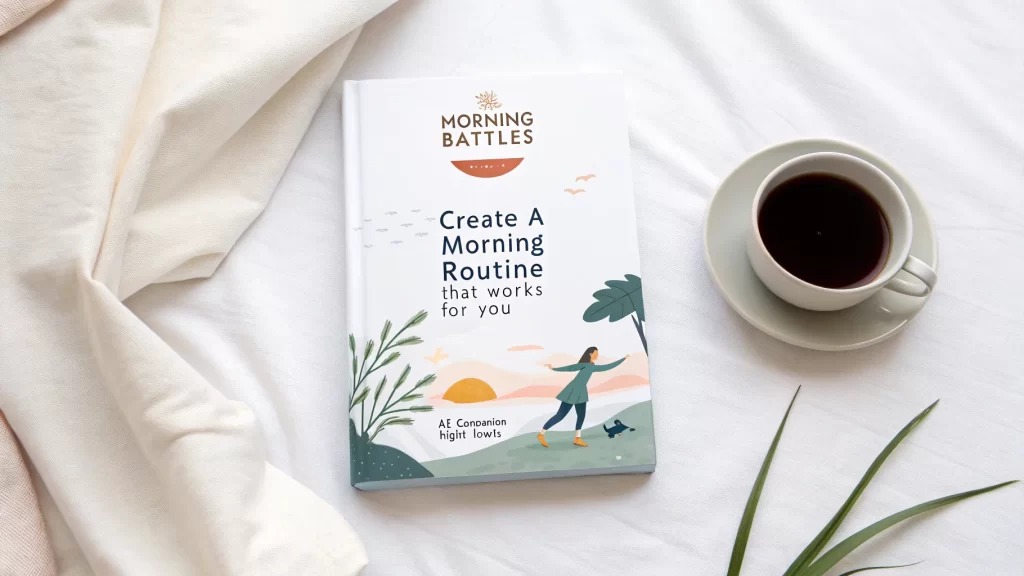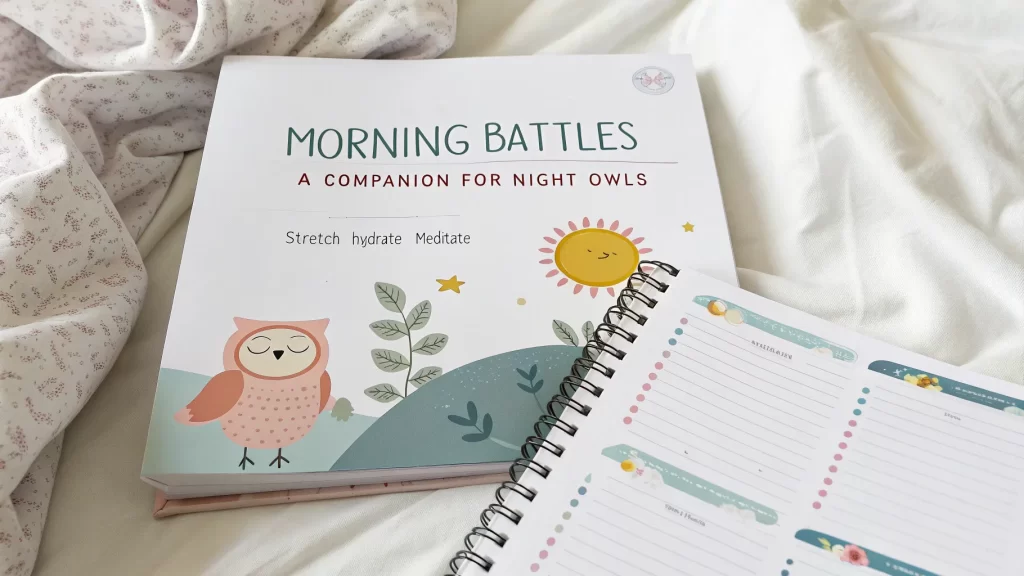Table of Contents
Morning Routine for People Who Hate Mornings: A Guide to Starting Your Day Right
Mornings can feel like a battle, especially if you’re not a morning person. The blaring alarm, the rush to get ready, and the grogginess can make it hard to embrace the start of the day. However, a well-structured morning routine can lead to increased productivity, better mental health, and a more positive outlook on the day.
But what if mornings didn’t have to be a struggle? This guide is a comforting companion for you, a night owl or a heavy snoozer, who often feels alone in their morning battles. It will help you create a morning routine that works for you—no matter how much you hate mornings.
Why Mornings Feel Like a Battle (And How to Change That)
The Science Behind Morning Struggles
Not everyone is wired to jump out of bed at 5 a.m. Some people are night owls, naturally more alert and productive in the evenings. This isn’t just a preference—it’s biology.
Understanding this about yourself can empower you to take control of your mornings. Your circadian rhythm, or internal body clock, plays a huge role in how you feel in the morning. This rhythm is shifted later for night owls, making early mornings feel like a struggle.
Morning fatigue is also tied to hormones like cortisol and melatonin. Cortisol, which helps you wake up, may peak later for non-morning people. Meanwhile, melatonin, the sleep hormone, lingers longer, making it harder to feel refreshed at dawn. Read More Here: How to pack without air?
Common Morning Pain Points
If you hate mornings, you’ve probably experienced these classic struggles:
- Snoozing the alarm repeatedly: That extra 10 minutes of sleep feels tempting, but it often leaves you groggier.
- Feeling groggy and unmotivated: Low-energy mornings can overwhelm even simple tasks.
- Rushing through the morning routine: When you’re not a morning person, getting ready can feel like a race against the clock.
Crafting a Morning Routine You Won’t Dread

Start the Night Before
A smooth morning begins the night before. Preparing your outfit, meals, and to-do list can save precious minutes. Setting a consistent bedtime is also crucial. Aim for 7-9 hours of sleep to ensure you wake up feeling rested.
Ditch the Snooze Button
Hitting snooze might feel like a win, but it disrupts your sleep cycle, leaving you more tired. Instead, try placing your alarm across the room or using a sunrise alarm clock that mimics natural light. These small changes can make getting out of bed easier.
Hydrate and Energize Your Body
Drinking water the first morning can kickstart your metabolism and help you feel more awake. Pair this with a few minutes of stretching or yoga to energize your muscles and boost circulation.
Also Read: Who’s In Jail Pinellas County Inmate Fl: Florida Department
Small Wins for a Smoother Morning
The Power of a 5-Minute Ritual
Starting your day with a simple habit like deep breathing, journaling, or a quick meditation can set a positive tone. These small wins, no matter how insignificant they may seem, can make you feel accomplished and ready to tackle the day. They can be a source of motivation and positivity in your morning routine.
Make Your Morning Enjoyable

Incorporate something you love into your routine. Listening to a podcast, sipping coffee, or playing your favorite playlist can make mornings something to look forward to. These small pleasures can help.
Breakfast Hacks for the Morning Hater
Quick and Healthy Breakfast Ideas
Overnight oats, smoothies, and grab-and-go options like yogurt with fruit are perfect for busy mornings. Skipping breakfast might seem like a time-saver, but it can leave you feeling sluggish and less productive.
Caffeine Tips for Maximum Effectiveness
Suppose you rely on coffee; timing matters. Drinking it within an hour of waking up can boost alertness without disrupting your cortisol levels. For a natural energy boost, try alternatives like green tea or Matcha.
Also Read: If Music Be the Food of Love: Exploring Shakespeare’s Quote
Optimizing Your Environment for Better Mornings
Create a Calm and Inviting Space
Decluttering your bedroom can make it easier to relax at night and wake up refreshed. Use natural light to your advantage by opening curtains or a light therapy box to mimic sunrise.
Tech-Free Mornings (Or at Least Tech-Lite)
Scrolling through social media is the first thing that can drain your energy. Use apps that improve your routine. Choose meditation guides or habit trackers. They should help you without causing distractions.
Building Consistency Without Burning Out

Start Small and Scale Up
Begin with one or two habits, like drinking water or stretching, and gradually add more. Flexibility is key—your routine should work for you, not against you.
Tracking Your Progress
Using a journal or app to track your morning habits can help you stay motivated. Celebrate small victories, like waking up 10 minutes earlier or trying a new breakfast recipe.
Read Also: How Much Does a Parrot Cost? Price Guide for Potential Owners
When All Else Fails: Emergency Morning Hacks
The 10-Minute Morning Survival Guide
When tight, focus on the essentials: brush your teeth, throw on a pre-planned outfit, and grab a quick breakfast. Keep a stash of healthy snacks and easy-to-wear clothes for these moments.
Mental Tricks to Get Out of Bed
If hitting snooze is your nemesis, try the “5-second rule.” Count down from 5 and force yourself to get up. Reframing your mindset—thinking of mornings as a fresh start rather than a chore—can help.
Final Thoughts
Mornings don’t have to be a battle. You can transform your mornings from dreaded to doable. To do this, understand your body’s rhythms. Create a routine you enjoy. Then, make small, consistent changes. Whether you are a night owl or an alarm clock hater, these tips can help you start your day on the right foot.




